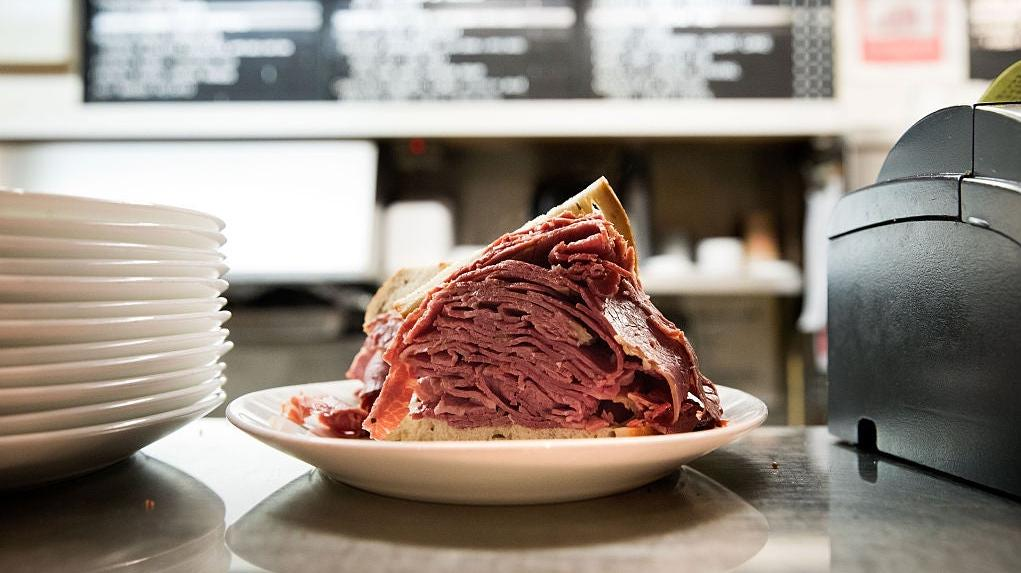What Is The 'Corned' In 'Corned Beef,' Anyway?
The origins of "corned beef" are less about actual corn and more about huge chunks of salt.
Of all the adjectives in the world, "corned" may be the best. It's an unusual state of being in the sense that it's only applicable to beef. After all, you don't hear about a "corned" drumstick or a "corned" candy cane. You don't soak your kid brother in brine and scream "YA GOT CORNED, FOOL!" You'll never see a surgeon hang her head, gesture to a patient sadly and proclaim, "I'm sorry, there's nothing we can do. He's been corned." Part of that may be due to the origins of the term "corned," which is less about actual corn and more about giant salt crystals.
What is corned beef?
If you've never had the pleasure of chowing on corned beef, I am so sorry. Corned beef is a delicious, tender, salty delight—but it has nothing to do with corn. Corned beef refers to a cut of meat that's salted and cured during a process that takes around a week. If you're making corned beef at home, that usually looks like sticking a brisket in a pot of heavily salted water and spices and refrigerating it for up to eight days. As I've mentioned, "corned" is a delightful adjective, but no actual kernels are used in the making of a corned beef. So where did the term originate?
When did corned beef originate?
Corned beef is often associated with St. Patrick's Day festivities, and for good reason. To trace the origins of corned beef, we've gotta go all the way back to Ireland in the 1600s. Per Smithsonian, cattle were a major Irish export prior to the Cattle Acts of 1663 and 1667. These acts halted the export of live cattle from Ireland to England, which meant the Irish people had more cattle than they knew what to do with. Of course, the clever Irish cattle barons realized that the Cattle Acts banned the sale of live cattle—but allowed the import of cured beef. Meanwhile, Ireland's salt tax was far less than England's, leaving Ireland with heaps of cattle and salt.
Cattle + salt = corned beef, baby. But what's corn got to do with it?
Smithsonian reports that the British invented the term "corned beef" to describe the size of the salt crystals used to cure the imported meat. The crystals were roughly the size of corn kernels; in other words, they were huge. As Smithsonian puts it, "the taste was much more salt than beef." That didn't stop the global thirst for Irish corned beef. Apparently, the stuff was in such high demand that England allowed French ships to stop in Ireland to purchase the corned beef while England and France were at war. Talk about statesmanship.
In theory, you could corn anything. As long as a food product is prepared using the corned beef-inspired brining process, it's technically "corned." That leads me to ask: if I corn the beef, who will corn me?
